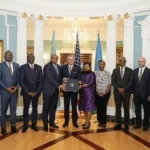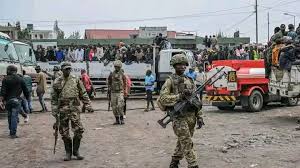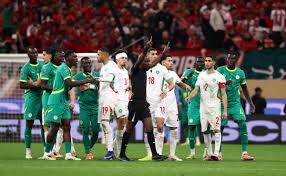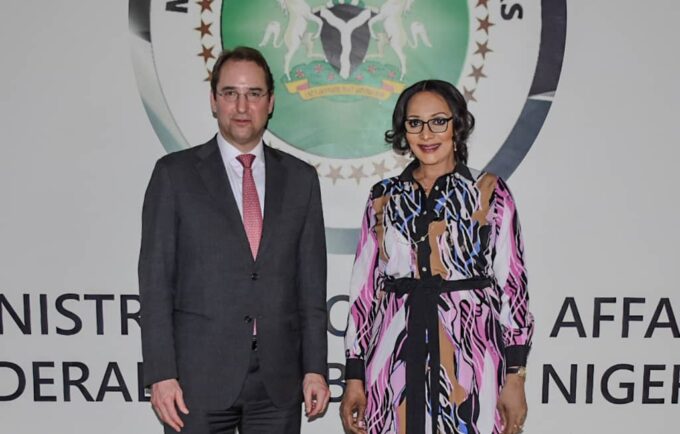South Africa’s national fight against corruption has taken a dramatic turn with the arrest of the country’s top crime intelligence officer, Lieutenant-General Dumisani Khumalo. The high-profile police general, who leads the South African Police Service’s (SAPS) Crime Intelligence division, was detained on Thursday evening by members of the anti-corruption task force shortly after arriving at Johannesburg’s OR Tambo International Airport.
Lt-Gen Khumalo appeared in court in Pretoria on Friday, alongside six other senior SAPS officers, all of whom face serious allegations of fraud, corruption, and misconduct linked to the suspected mismanagement of intelligence funds and unlawful internal appointments. Although specific details of the charges have not been officially disclosed, several investigative reports from local media suggest that the accused are under scrutiny for the alleged abuse of the secret services account — a multi-million rand intelligence fund that has historically lacked financial transparency and accountability.
This latest development marks the second wave of arrests within the SAPS Crime Intelligence unit in just two weeks. Earlier, three high-ranking intelligence officers were arrested under similar allegations involving corruption, maladministration, and irregular procurement practices. The growing list of implicated senior officials has cast a long shadow over one of South Africa’s most critical security structures, whose very mandate is to prevent organized crime, political instability, and internal threats to national security.
The arrested officers have signaled their intention to plead not guilty through their legal representative, who indicated that they will contest all charges in court.
Lt-Gen Khumalo, a career officer with over 20 years of service in various specialized units of the SAPS, was appointed to head Crime Intelligence in 2022 as part of a broader national security reform initiative. His appointment had initially been viewed as a stabilizing force within a unit previously plagued by leadership turmoil and internal factionalism. However, his arrest has now thrown those efforts into crisis.
Political parties have responded swiftly. The Democratic Alliance (DA), South Africa’s second-largest party and a key member of the governing coalition, welcomed the arrests, describing them as a “critical step in rescuing a law enforcement agency on the brink of collapse.” In a statement, the DA said the incident highlights “yet another serious breach of public trust” and called for an urgent overhaul of internal SAPS oversight mechanisms.
The Economic Freedom Fighters (EFF), a vocal opposition party, issued an even stronger rebuke. “This is not an isolated incident,” the EFF said. “This is the latest symptom of a deeply corrupt and hollowed-out policing system that urgently requires structural and ethical reform.”
Civil society and anti-corruption watchdogs have also weighed in, emphasizing that the repeated exposure of high-level graft within law enforcement undermines public trust, weakens institutional integrity, and jeopardizes the rule of law in a country already battling high levels of violent crime and political instability.
South Africa’s police force has long struggled with internal corruption scandals, from procurement fraud to collusion with criminal networks. Successive leadership changes and multiple probes by the Independent Police Investigative Directorate (IPID) have done little to stem the rot. According to Transparency International and the Corruption Watch report, trust in the SAPS ranks among the lowest across all public institutions in South Africa.
The current case against Lt-Gen Khumalo and his co-accused is expected to be closely watched both domestically and internationally as a litmus test of South Africa’s commitment to law enforcement transparency and state accountability. As the court proceedings unfold, public attention will remain sharply focused on whether the country’s justice system can deliver meaningful consequences for those accused of abusing positions of power, especially within the very agencies tasked with upholding justice and combating corruption.














Leave a comment